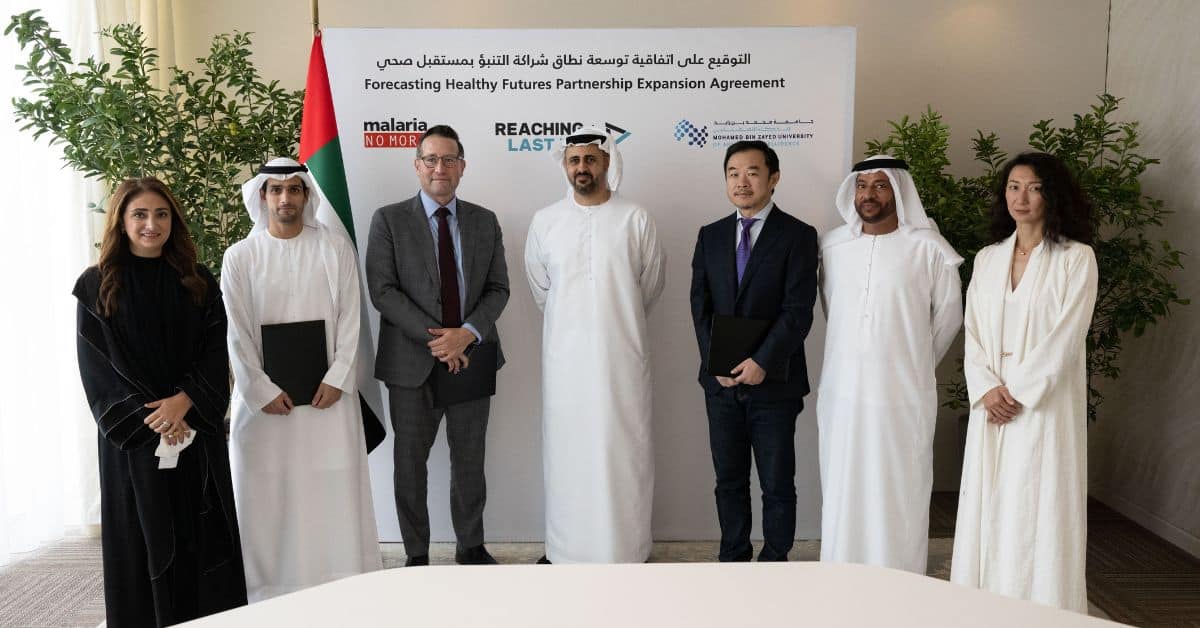Malaria continues to be a major life-threatening disease caused by five species of Plasmodium malaria parasites, which are transmitted through the bite of an infected female Anopheline mosquito.
According to the World Health Organization’s (WHO) 2022 World Malaria Report, there were an estimated 247 million cases of malaria and 619,000 deaths worldwide in 2021. African countries bear a disproportionately high burden, accounting for 95 percent of cases and 96 percent of deaths.
In the WHO’s South-East Asia region, there was an 8.4 percent increase in malaria cases in 2021. However, the Western Pacific region saw a 14 percent decrease, bringing cases back to near 2019 levels. The Mediterranean region reduced malaria by 38 percent between 2000 and 2015, but unfortunately, there was a subsequent increase of 44 percent between 2015 and 2021.
On April 24, 2023, the Ministry of Health and Family Welfare, Government of India, and the Asia Pacific Leaders Malaria Alliance hosted the Asia Pacific Leaders’ Conclave on Malaria Elimination. The event aimed to review the progress of malaria elimination and renew the commitment to eliminate malaria from the region by 2030.
The global map of malaria has gradually shrunk over the past few decades. During the period from 1955 to 2023, 41 countries and one territory have successfully eliminated malaria. Additionally, malaria disappeared in another 61 countries without specific interventions or never existed. In the Asia Pacific region, out of the 48 countries, 20 still have endemic malaria, but with aggressive and targeted interventions, malaria can be eradicated.
Numerous public health professionals, Ministries of Health of endemic countries, and global institutions such as the Global Fund, World Health Organization, Bill and Melinda Gates Foundation, US President’s Malaria Initiative, Roll Back Malaria Partnership to End Malaria, Asia Pacific Leaders Malaria Alliance, African Leaders Malaria Alliance, South Africa Development Community Malaria Elimination Eight Initiative, Global Institute for Disease Elimination, End Malaria Council, Medicine for Malaria Ventures, Innovative Vector Control Consortium, and the US Centers for Disease Control and Prevention have collaborated unprecedentedly to end malaria.
Imagine an Asia Pacific region where no one dies or falls ill due to malaria, where children attend school without interruption, pregnant women have safer pregnancies, people can work consistently to support their families, and nations no longer need to allocate resources to perpetual malaria control and treatment programs.
The recent successes in malaria elimination in Sri Lanka, Maldives, and China provide optimism that malaria can be eradicated from other Asia Pacific nations. However, challenges such as civil conflicts, political instability, natural disasters, weak health systems, and the inability to absorb external aid pose significant threats to malaria elimination efforts in countries like Myanmar, Pakistan, Afghanistan, Papua New Guinea, and the Solomon Islands.
India has valuable experiences to share from a comprehensive malaria elimination demonstration project in Madhya Pradesh. The Mandla project has provided valuable insights that can be utilized for sub-national, national, and regional elimination programs. Key learnings from the project include oversight at various levels, independent reviews by public health experts, real-time data analysis, regular briefings, and data sharing through peer-reviewed publications.
I firmly believe that a Malaria-Free India and most nations in the Asia Pacific region can be achieved by 2030. It is crucial for leaders of Asia Pacific nations to expand the advocacy campaign ‘A Malaria Free Nation Starts with Me’ from Africa to Asia Pacific, spearheaded by Prime Ministers, Ministers for Health, Chief/Provincial Ministers, National Secretaries, Principal Health Secretaries at the state level, and District Collectors and Chief Medical and Health Officers at the district level.
In order to realize the goal of malaria elimination within the desired timeframe, it is important that a Malaria Free Asia Pacific Region becomes a shared objective seen through the lens of a ‘Decade of Collaboration’ approach, with everyone actively involved.
The feasibility of achieving a Malaria-Free Asia Pacific by 2030 is supported by the availability of safe, effective, and affordable diagnostic tests, drugs, and vector control tools that are produced within the region.
Sustaining malaria elimination in areas that have achieved it becomes challenging unless the entire region is free from malaria. This challenge can be overcome through meaningful cross-border collaboration, embracing a ‘Nation as a Whole’ and ‘Region as a Whole’ approach.
Therefore, now is the opportune moment to adopt an all-hands-on-deck approach, utilizing collective leadership and investing resources at the national level. Additionally, targeted and sustained external support from donor agencies is vital to ensure malaria is eradicated forever in all Asia Pacific countries.
Altaf Ahmed Lal is Senior Advisor Global Health and Innovation, Sun Pharma. He serves as the Director of the Malaria Elimination Demonstration Project. He is a Board Member of Roll Back Malaria Partnership to End Malaria and a Board Member of the Foundation of Disease Elimination and Control. He is the former Health Attache and US Health and Human Services’ Regional Representative for South Asia. He is also a former Board Member of Asia Pacific Leaders Malaria Alliance.
The opinions expressed are those of the author and may not reflect the editorial policy or an official position held by TRENDS.








